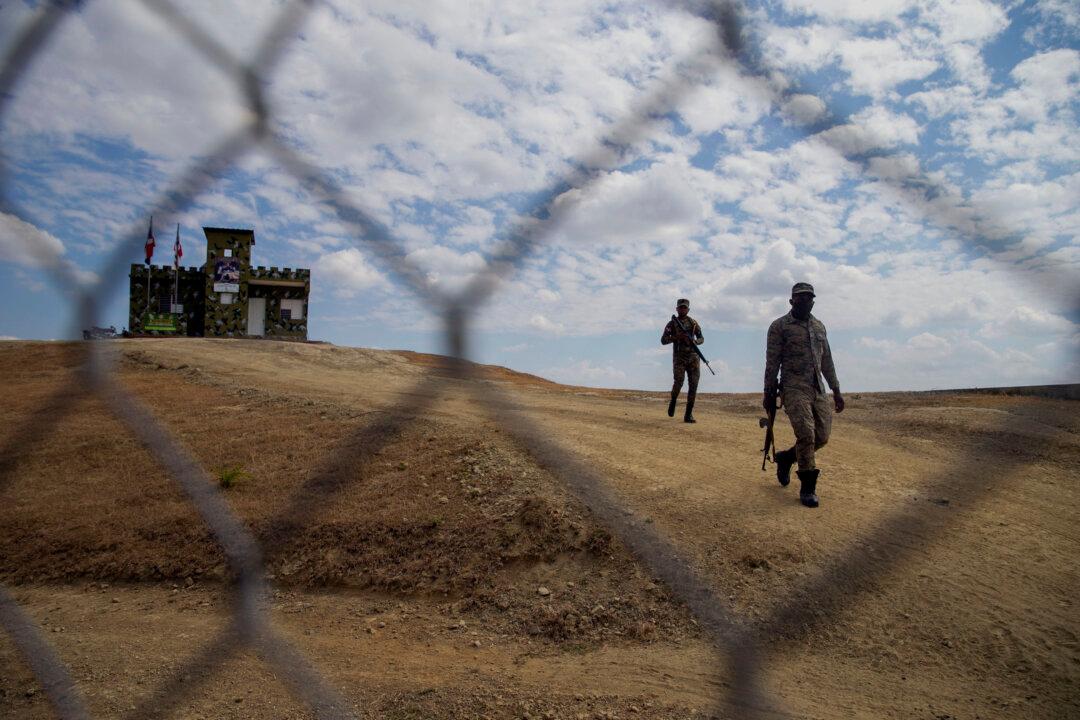The Dominican Republic will partially reopen its border with Haiti to allow for the trading of goods, but will keep in place its ban on Haitian citizens, the government announced on Oct. 9.
The announcement comes nearly a month after the Dominican Republic sealed its more than 240-mile border with Haiti amid an ongoing dispute over the construction of a canal diverting water from the Massacre River, also known as the Dajabón River, which runs through both nations.




